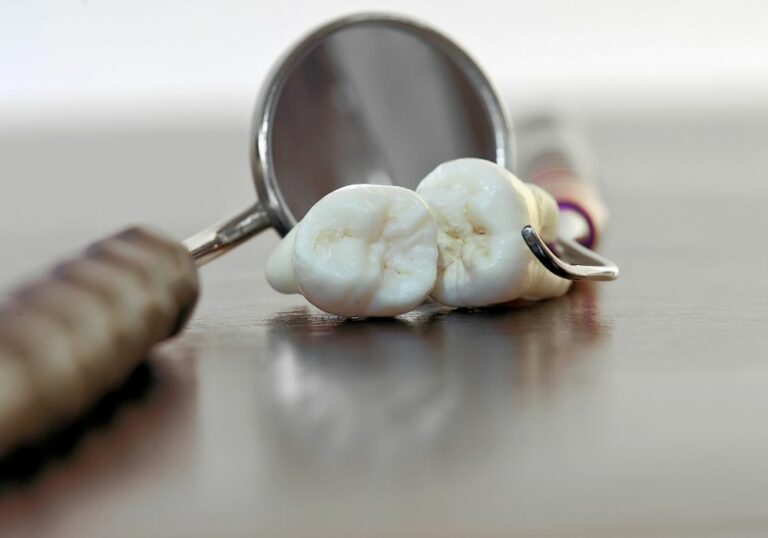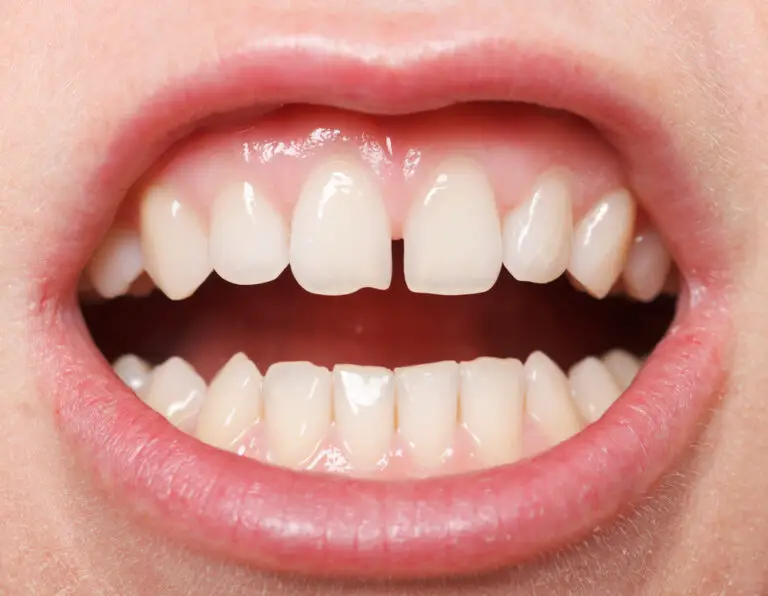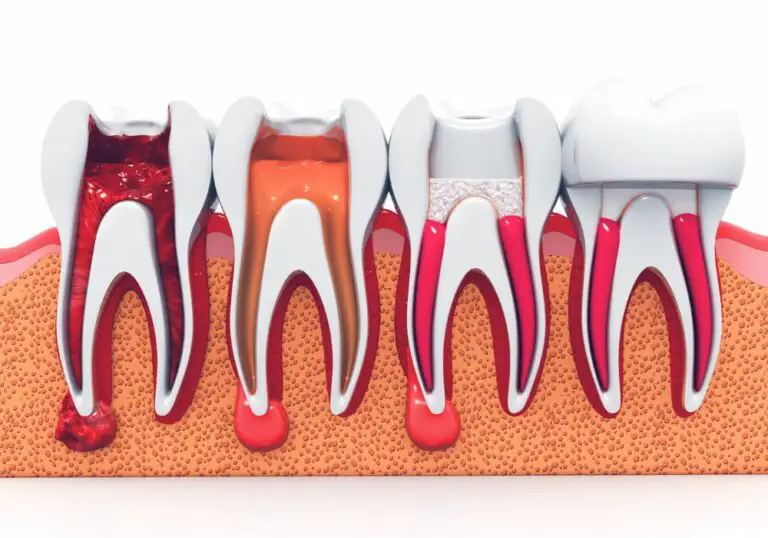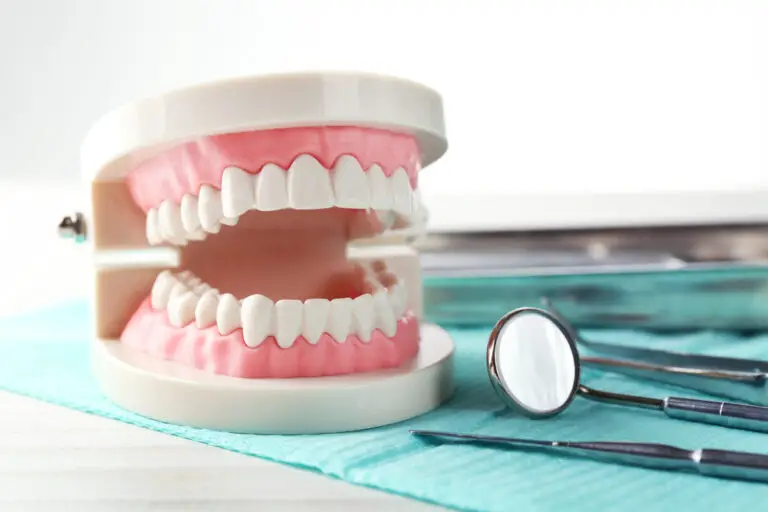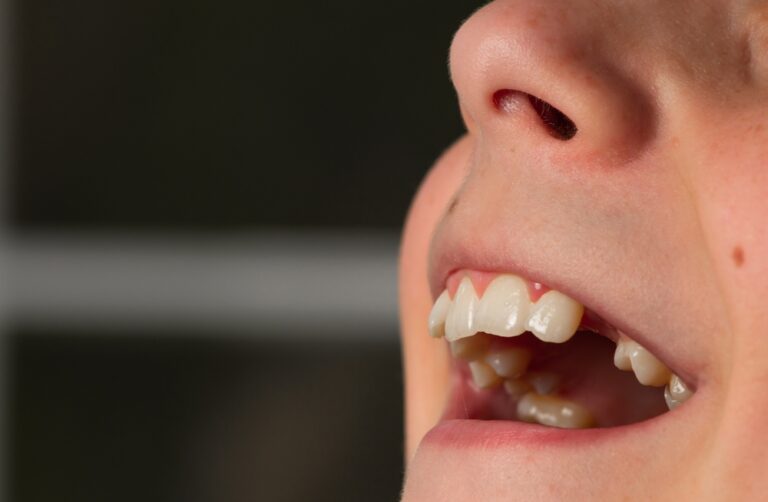Do you find that your teeth chip easily? Chipped teeth can be a painful and unsightly problem that affects many people. There are a variety of reasons why teeth can chip easily, and understanding these causes can help you prevent further damage to your teeth.
One common cause of chipped teeth is eating hard or crunchy foods. This can be especially problematic if you have weak or brittle teeth, which can be caused by a variety of factors including genetics, poor dental hygiene, or certain medical conditions. Grinding your teeth, either during the day or at night, can also cause your teeth to chip easily. Additionally, age-related wear and tear can cause your teeth to become weaker over time, making them more prone to chipping.
Understanding Tooth Enamel

Tooth enamel is the hard, outer layer of your teeth that protects them from damage and decay. Understanding the role of tooth enamel and what can weaken it is important for maintaining good oral health.
Role of Tooth Enamel
Tooth enamel is the hardest substance in the human body, even stronger than bone. It covers the visible part of your teeth and protects them from daily wear and tear, as well as from acids and bacteria that can cause cavities.
Enamel is made up of minerals, primarily calcium and phosphate, which form a crystalline structure that is highly resistant to damage. While enamel is incredibly strong, it can still be damaged by excessive wear and tear or trauma to the teeth.
What Weakens Tooth Enamel
There are several factors that can weaken tooth enamel, making it more susceptible to damage and decay. Some of the most common include:
- Poor oral hygiene: Failing to brush and floss regularly can allow plaque and bacteria to build up on your teeth, which can erode enamel over time.
- Acidic foods and drinks: Consuming highly acidic foods and drinks, such as citrus fruits, soda, and sports drinks, can erode enamel and make teeth more prone to chipping and cracking.
- Tooth grinding: Grinding your teeth, especially at night, can wear down enamel and cause teeth to chip or crack.
- Age: As you get older, your enamel naturally becomes thinner and weaker, making your teeth more prone to damage.
By understanding the role of tooth enamel and what can weaken it, you can take steps to protect your teeth and maintain good oral health.
Causes of Easy Teeth Chipping
If you find that your teeth are chipping easily, it’s important to understand the underlying causes. Here are some common factors that can contribute to easy teeth chipping:
Poor Dental Hygiene
Neglecting your oral hygiene can lead to weak and brittle teeth that are more prone to chipping. Poor dental hygiene can cause a buildup of plaque and tartar, which can weaken the enamel and make your teeth more susceptible to damage.
To prevent easy teeth chipping due to poor dental hygiene, it’s important to brush your teeth twice a day, floss regularly, and visit your dentist for regular checkups and cleanings.
Nutritional Deficiencies
A lack of certain nutrients in your diet can also contribute to weak teeth that are more prone to chipping. Calcium and phosphorus are essential minerals that help to strengthen teeth, so a diet that is deficient in these nutrients can lead to weakened teeth.
To prevent easy teeth chipping due to nutritional deficiencies, make sure to eat a balanced diet that includes plenty of calcium-rich foods like dairy products, leafy greens, and fortified cereals.
Genetic Factors
In some cases, easy teeth chipping can be the result of genetic factors. Some people may be born with weaker enamel or teeth that are more prone to damage.
While you can’t change your genetics, you can take steps to protect your teeth and prevent further damage. This includes practicing good oral hygiene, avoiding hard foods and objects that could damage your teeth, and wearing a mouthguard if you grind your teeth at night.
Teeth Grinding
Teeth grinding, also known as bruxism, can cause significant damage to your teeth over time. Grinding your teeth can wear down the enamel and make them more prone to chipping and cracking.
To prevent easy teeth chipping due to teeth grinding, talk to your dentist about getting a custom-fitted mouthguard to wear while you sleep. This can help to protect your teeth and prevent further damage.
Signs and Symptoms of Chipping Teeth

If you have chipping teeth, you may experience the following signs and symptoms:
- Rough or jagged edges on your teeth that you can feel with your tongue or fingers.
- Sensitivity or pain when eating hot or cold foods or drinks.
- Pain when biting or chewing.
- Swollen or bleeding gums around the affected tooth.
- Visible cracks or fractures on the tooth surface.
You may also notice that your teeth are more prone to chipping than before. This can be due to a variety of reasons, such as tooth decay, grinding your teeth, or a poor diet.
If you experience any of these symptoms, it’s important to see a dentist as soon as possible. Your dentist can examine your teeth and determine the cause of the chipping. Depending on the severity of the damage, your dentist may recommend different treatment options, such as bonding, veneers, or crowns.
Remember, chipping teeth can lead to more serious dental issues if left untreated, so it’s important to take action as soon as possible.
Diagnosis and Tests
If you have a chipped tooth, you should visit your dentist as soon as possible. Your dentist will examine your teeth and gums to determine the cause of the chipping. They may also ask you about your medical history and any medications you are taking.
During the examination, your dentist may use a dental instrument to gently probe the chipped tooth to check for any sensitivity or pain. They may also take X-rays to check for any underlying issues, such as tooth decay or gum disease.
In some cases, your dentist may refer you to a specialist, such as an endodontist or periodontist, for further evaluation and treatment.
If you have a history of chipping teeth, your dentist may recommend additional tests, such as a bite analysis, to determine if your teeth are properly aligned and functioning correctly.
Overall, it is important to visit your dentist regularly for routine check-ups and cleanings to prevent dental issues, such as chipped teeth, from occurring in the first place.
Treatment Options
If you have a chipped tooth, there are several treatment options available to restore its appearance and function. Here are some of the most common treatments:
Dental Bonding
Dental bonding is a simple and affordable treatment option for minor chips. The dentist will apply a tooth-colored resin to the affected tooth and shape it to match the surrounding teeth. The resin is then hardened with a special light, and the tooth is polished to give it a natural appearance. Bonding is a quick and painless procedure that can usually be completed in one visit to the dentist.
Veneers
Veneers are thin, custom-made shells that are bonded to the front of your teeth to improve their appearance. They are typically made of porcelain or composite resin and can be used to cover chipped teeth, as well as teeth that are discolored, misshapen, or have gaps between them. Veneers are a more expensive option than bonding, but they can provide a more long-lasting and natural-looking result.
Crowns
Crowns are a more extensive treatment option for severely chipped or damaged teeth. They are custom-made caps that are placed over the entire tooth to restore its shape, size, and strength. Crowns can be made of porcelain, metal, or a combination of both materials. They require multiple visits to the dentist and are a more costly option than bonding or veneers.
Root Canal Therapy
If a chipped tooth has caused damage to the pulp or nerve of the tooth, you may need root canal therapy. This involves removing the damaged tissue and filling the space with a special material. The tooth is then capped with a crown to protect it from further damage. Root canal therapy is a more extensive treatment option and may require multiple visits to the dentist.
Overall, the treatment option that is best for you will depend on the extent of the damage to your tooth and your budget. Consult with your dentist to determine which treatment option is right for you.
Prevention Strategies

If you are someone who has been experiencing chipped teeth frequently, there are certain prevention strategies that you can adopt to minimize the risk of further damage to your teeth. Here are some of the most effective prevention strategies that you can start following:
Dietary Changes
One of the primary reasons for chipped teeth is the consumption of hard and crunchy foods. To prevent chipping, you should avoid biting on hard objects such as ice, popcorn kernels, and hard candy. Additionally, you should also limit your intake of acidic foods and drinks such as citrus fruits, coffee, and soda. These foods can weaken your tooth enamel, making it more susceptible to chipping.
Oral Hygiene Practices
Maintaining good oral hygiene is crucial to prevent chipping of teeth. Brush your teeth twice a day with a fluoride toothpaste and floss regularly to remove any food particles that might be stuck in between your teeth. You should also avoid using your teeth as tools to open packages or bottles, as this can cause them to chip.
Regular Dental Check-ups
Regular dental check-ups are essential to prevent chipping of teeth. During these check-ups, your dentist will examine your teeth for any signs of wear and tear and recommend appropriate treatment options. Your dentist may also suggest the use of a mouthguard if you grind your teeth at night or during physical activities.
By following these prevention strategies, you can minimize the risk of chipping your teeth and maintain good oral health. Remember to consult your dentist if you experience any pain or discomfort in your teeth.
Frequently Asked Questions
Why are my teeth chipping at the gum line?
Chipping at the gum line can be caused by a variety of factors, including gum disease, teeth grinding, and improper brushing techniques. It’s important to visit your dentist to determine the underlying cause and receive appropriate treatment.
Why do my teeth keep chipping and breaking?
Teeth can chip and break due to a variety of reasons, including tooth decay, grinding, and trauma. It’s important to maintain good oral hygiene habits and visit your dentist regularly to address any concerns and prevent further damage.
How to stop teeth from chipping?
To prevent teeth from chipping, it’s important to practice good oral hygiene habits, such as brushing twice a day and flossing daily. Additionally, wearing a mouthguard during sports or at night to prevent teeth grinding can also help protect your teeth.
Small chip in tooth should I go to the dentist?
Yes, it’s important to visit your dentist if you have a small chip in your tooth. Even a small chip can lead to further damage if left untreated, and your dentist can determine the best course of action to prevent further damage.
Are small chips in teeth normal?
Small chips in teeth can be common and may not always require treatment. However, it’s important to visit your dentist to determine the severity of the chip and whether any treatment is necessary.
Is it bad if my teeth are chipping?
Chipping can be a sign of underlying dental issues, such as tooth decay or grinding, and can lead to further damage if left untreated. It’s important to visit your dentist to determine the underlying cause and receive appropriate treatment to prevent further damage.

